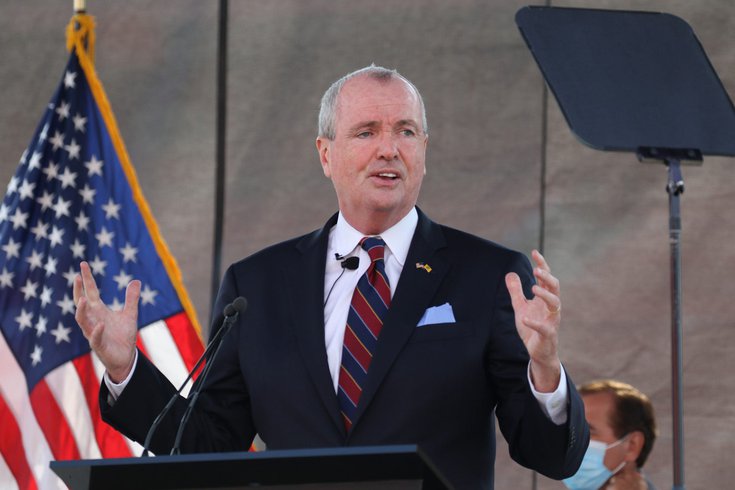New Jersey voters re-elect Democrat for first time in 44 years
November 2nd marked the date for New Jersey’s Gubernatorial Election. Incumbent Democratic Governor Philip Murphy looked to secure reelection, a feat that hasn’t happened in several decades. Running against him was Republican Jack Ciattarelli, who boasted 8 years of experience in the New Jersey General Assembly. Amidst various issues including the continuing COVID 19 pandemic, the weeks leading up to the election had been contentious, and many expected the results to be very close. Before looking into these results, let’s take a better look at each of the candidates, exploring their views and their aspirations if elected.
Incumbent New Jersey Governor Phil Murphy spent his childhood both in Newton, New Jersey, as well as Needham, Massachusetts. Graduating From Needham High School, Murphy pursued high ambitions, attending Harvard University as well as The Wharton School of the University of Pennsylvania, both schools holding high prestige. Identifying as a Democrat and long time member of the Democratic Party, Phil Murphy had a relatively short political career, serving as a US Ambassador to Germany from 2009 to 2013, before being elected as the 56th Governor of New Jersey. Since then, he has supported policies such as the legalization of marijuana and the creation of efficient, affordable housing. His 2021 campaign was focused on key issues, showing his support for a shift to clean forms of energy, reform of the justice system, increased gun control, as well as providing affordable and accessible forms of healthcare to all citizens of New Jersey. Murphy hoped that these stances would resonate with New Jersey’s notoriously Democratic tendencies, and they propelled him to a sizable lead in the various polls conducted before election day.
Challenger Jack Ciattarelli has been no stranger to New Jersey politics. Raised here in New Jersey, Ciattarelli was born in the small borough of Somerville. Initially, he wasn’t set on politics, having received both a Bachelor’s degree in accounting and a M.B.A. in finance from Seton Hall University. This changed in 2011 when Ciattarelli was elected to the New Jersey General Assembly, identifying as a Republican. He cut his time in the General Assembly short in order to run for governor in 2017. However, Ciattarelli fell short in the republican primary, receiving only 75,556 votes to Former Secretary of State of New Jersey Kim Guadagno’s 113,846 votes. The following year, he left office in the New Jersey General Assembly, and announced his plan to run for governor once again for the 2021 election. Ciattarelli’s conservative policies differed significantly from Murphy’s liberal ones. His policies included lowering property taxes, honoring veterans, supporting law enforcement, and upholding personal rights & freedoms. However, it seems that the two candidates did agree on several issues, such as the necessity of implementing clean energy policies, and ensuring healthcare is affordable for all. Ciattarelli polled significantly behind Murphy for most of the race, but Murphy’s sizable lead in the polls diminished come election night.
November 2, a staggering 2,616,377 New Jersey residents cast their votes for Governor. Ciattarelli nabbed an early lead on election night. Similar to the patterns observed in the 2020 Presidential Election, many early votes favored the Republican candidate, as many of these votes were cast in person. However, as time went on, Murphy closed the gap, receiving many mail-in ballots. The mail-in ballot heavily favored Murphy, as he won the mail-in vote in every county within the state, even those that lean heavily Republican. The race remained incredibly close, and the Associated Press didn’t call the race for Murphy until the evening of Wednesday, November 3. Ciattarelli himself didn’t concede until November 12, his campaign spokesperson arguing initially that the race was too close to call. Though Murphy pulled out the win, the closeness of the race shows that Murphy’s support is not shared among all New Jersey voters, and he will have to work throughout his second term to appease both the Democrats who voted him in, and the over 1.2 million others who voted against him.
The 2021 NJ Gubernatorial election is reflective of the shift in the opinions of New Jersey voters. Though Democrat Phil Murphy pulled out the win in New Jersey, November 2 also saw the election of a Republican governor, Glenn Youngkin in the state of Virginia. Since these elections come just over a year since the sizable win of Democrat Joe Biden in the 2020 Presidential Election, the large showing of Republican voters in these two gubernatorial elections may hint at growing Republican support. 2022 will be a busy year politically, as 36 US states elect new governors in 2022, and as 36 senate seats and all 435 House seats will be up for grabs. Stay tuned for the results of these general elections as they will provide a promising insight as to the national consensus as we near another presidential election in 2024.


